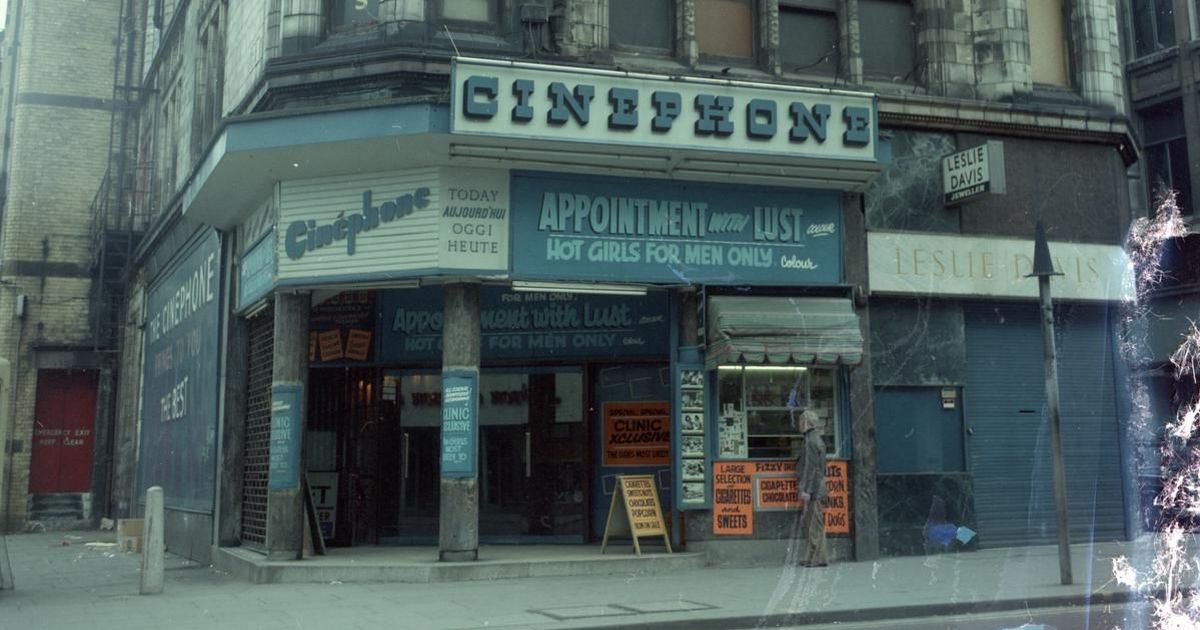The Cinephone was part of the area dubbed ‘Manchester’s Soho’ torn down for the colossal shopping centre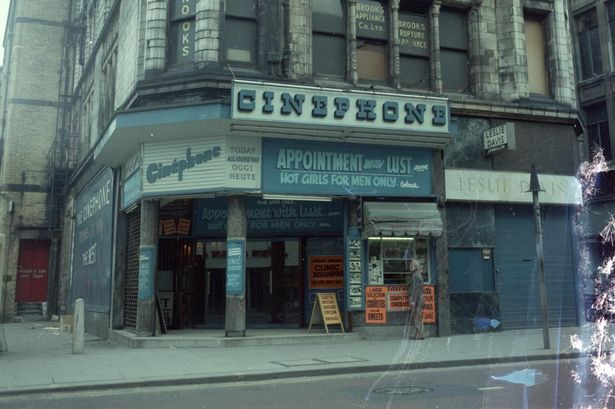 Cinephone on Market Street in November 1973(Image: @Manchester Libraries and Local Archives)
Cinephone on Market Street in November 1973(Image: @Manchester Libraries and Local Archives)
The construction of the Manchester Arndale in the mid-to-late 20th century had a profound effect on the city’s landscape. Still one of the largest in the UK, Manchester Arndale was built in phases between 1972 and 1979.
To make way for the shopping centre’s colossal footprint, an entire ecosystem of streets vanished. Swept away were the warren of Victorian buildings, warehouses, winding streets and alleyways.
During the ’50s and ’60s, several ‘beat clubs’, unlicensed coffee houses, sprang up. The clubs included Manchester Cavern on Cromford Court, where American blues stars like Little Walter and Sister Rosetta Tharpe played alongside The Rolling Stones and The Kinks.
The area was later dubbed ‘Manchester’s Soho’ and included more than one cinema specialising in arthouse and erotic fare. One such place was the Cinephone cinema on Market Street.
Join the Manchester Evening News WhatsApp group HERE
Opening around the beginning of the First World War as the Market Street Picture House, it was part of the wave of early 20th-century city centre picture houses showing silent films.
Standing where TK Maxx is now on Market Street, the narrow-fronted building was tucked among shops. With around 450 seats, it was classed as a small urban cinema rather than a grand ‘super cinema’.
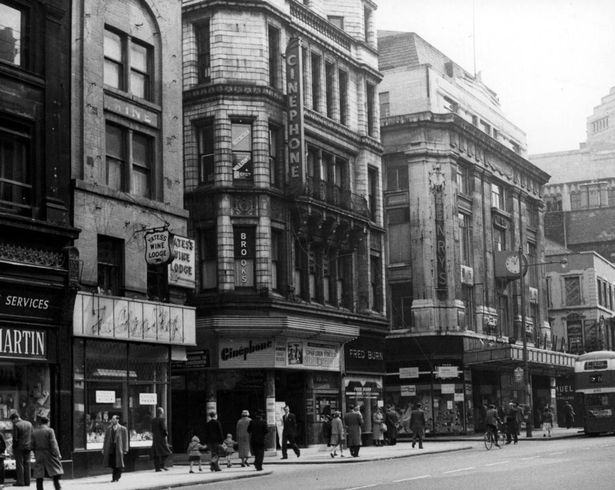 Cinephone on Market Street in 1957(Image: @Manchester Libraries and Local Archives)
Cinephone on Market Street in 1957(Image: @Manchester Libraries and Local Archives)
A small review in the Manchester Courier in December 1914, said: “Excellent programmes of the most up-to-date films are to be seen at the Oxford Picture House and the Market Street Picture House, both of which are noted for the uniformly high standard of their pictures.
“Attention-compelling dramas and laughter-tickling comedies furnish a relief from war news, although one’s imagination of what our soldiers really are doing at the front is greatly aided in forming an adequate conception by the war pictures shown, which can only have been secured at great risk and expense.”
Jacey Cinemas bought the cinema in September 1949 and ran it as a News Theatre till February 1950. It also later became known as the Continental Cinema, with its owner’s vision of screening quality continental films.
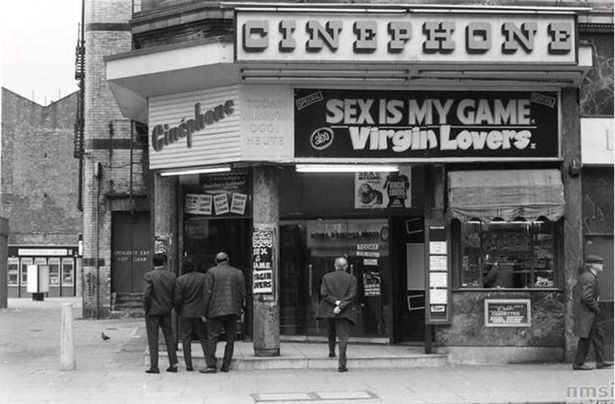 The Cinephone on Market Street advertising its ‘exotic’ screening in 1972(Image: cinematreasures.org)
The Cinephone on Market Street advertising its ‘exotic’ screening in 1972(Image: cinematreasures.org)
It was renamed Cinephone Cinema in 1955, and by the mid-1960s, its film showings had shifted from arthouse to continental ‘sex films’.
By the late 1960s and early 1970s, the cinema was showing films with titles such as Appointment With Lust, A Day of Sin, Queer and Erotic, and Where Are You Going All Naked?.
Images of the Cinephone cinema found in the Manchester Libraries archive reveal the building’s handsome Edwardian architecture.
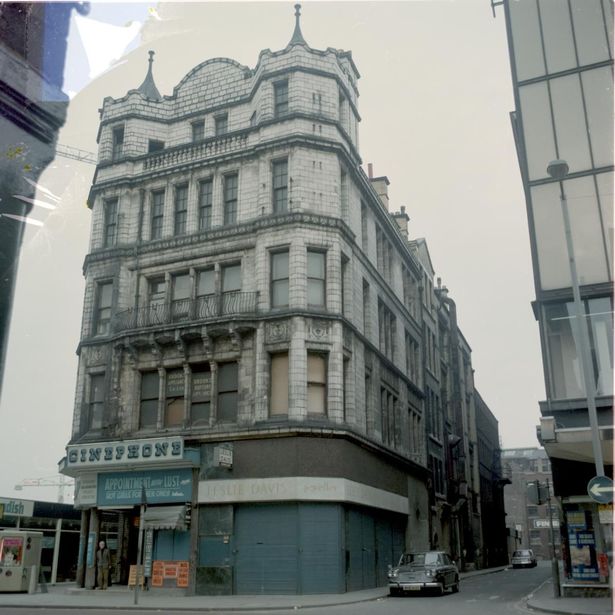 The Cinephone’s handsome Edwardian architecture is apparent in this 1973 photograph(Image: @Manchester Libraries and Local Archives)
The Cinephone’s handsome Edwardian architecture is apparent in this 1973 photograph(Image: @Manchester Libraries and Local Archives)
Photographs of the interior of the building, taken in 1973, also hint at what would have been an attractive small cinema back in the day, featuring period tiles and a large block of plush seating.
Local historian, Derek Southall, who published a historical account of Manchester cinemas called Magic in the Dark: The Cinemas of Central Manchester and Ardwick Green, said that by the late 1960s, the Cinephone had become ‘run down and seedy’, with a reputation for attracting the ‘dirty mac brigade’.
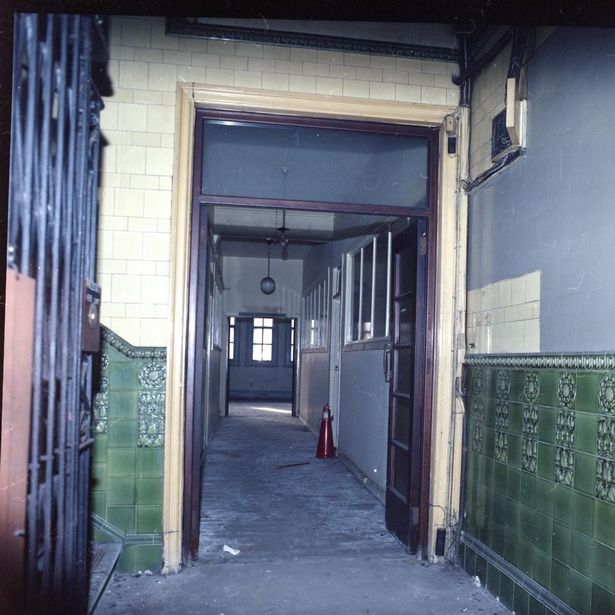 Period tiles inside the Cinephone on Market Street. Photo 1973
Period tiles inside the Cinephone on Market Street. Photo 1973
Manchester-born author and Cambridge University academic Colin Shindler recalled his experience of the Cinephone in his autobiography, Manchester United Ruined My Life.
He writes: “There seemed to be two contradictory scheduling policies at the Cinephone. One encouraged a love of all that was best and innovative in contemporary European cinema. The other screened nudie films for men in raincoats.”
By the mid-1970s, plans to build the Manchester Arndale shopping centre had led to large swathes of Manchester city centre being torn down for redevelopment.
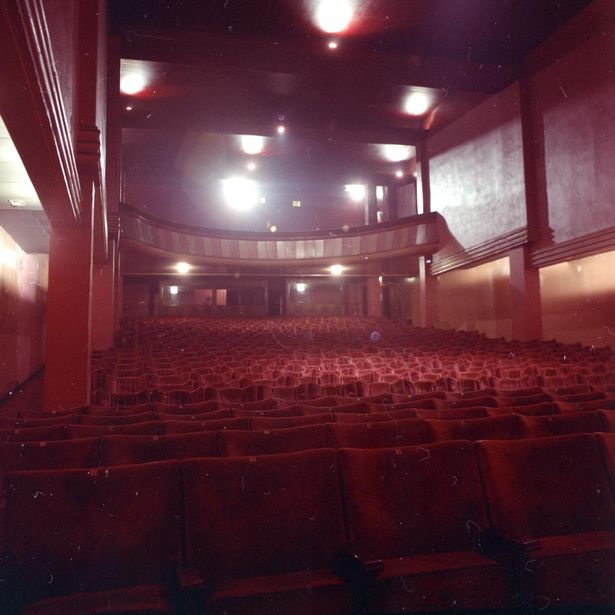 Seating inside the Cinephone cinema on Market Street. Photo 1973
Seating inside the Cinephone cinema on Market Street. Photo 1973
The Cinephone cinema closed its doors in 1974 and was demolished the following year, along with other shops and businesses.
‘It would be a listed gem today if it still stood’
Recently, a photograph of the Cinephone, taken shortly before it was demolished, was uploaded to the popular Manchester History Facebook group.
Many shared their memories of the classic cinema in the comments.
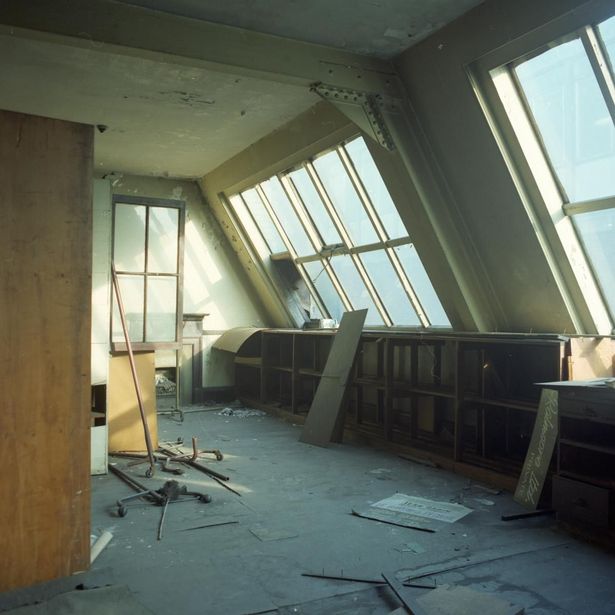 Inside the Cinephone. Photo 1973
Inside the Cinephone. Photo 1973
One man said: “We used to sneak in here under age after school to see all the naughty films, Henry’s department store was to the left. They should have at least preserved the façade of this building.”
Another said: “Oh yes! Went in there a number of times. They showed some rum stuff!”
Another man said: “My father used to hurry me past this building whilst taking a quick peek at what was on offer.”
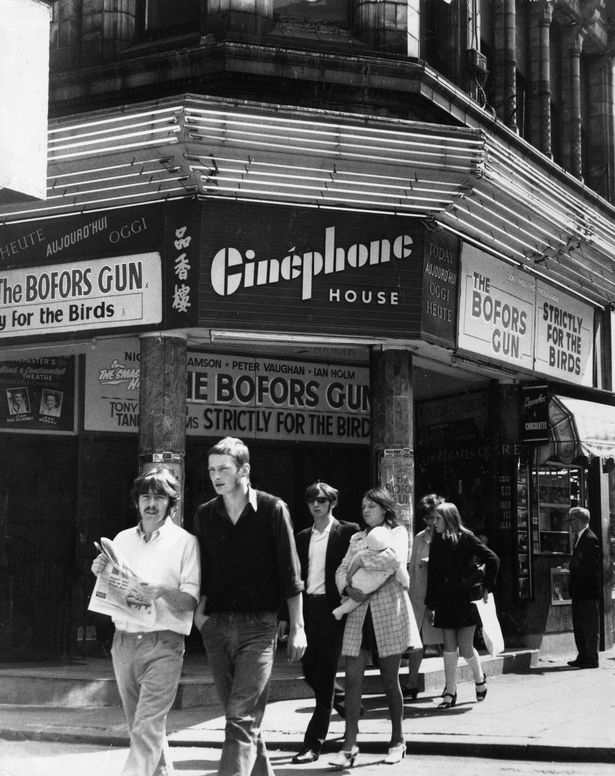 The Cinephone Cinema which specialised in foreign films in Market Street, Manchester. November 23, 1973
The Cinephone Cinema which specialised in foreign films in Market Street, Manchester. November 23, 1973
A woman said she and a friend went into the cinema by mistake, commenting: “It was full of dirty old men and very dark -couldn’t get out fast enough…” Adding: “We thought the lady in the ticket box gave us a funny look.”
While one man complimented the building’s striking architecture, saying: “Beautiful white tiled façade with ornate balcony. It’s certainly seen better days but still magnificent and would be a listed gem today if it still stood.”
Love Greater Manchester’s past? Sign up to our nostalgia newsletter here
